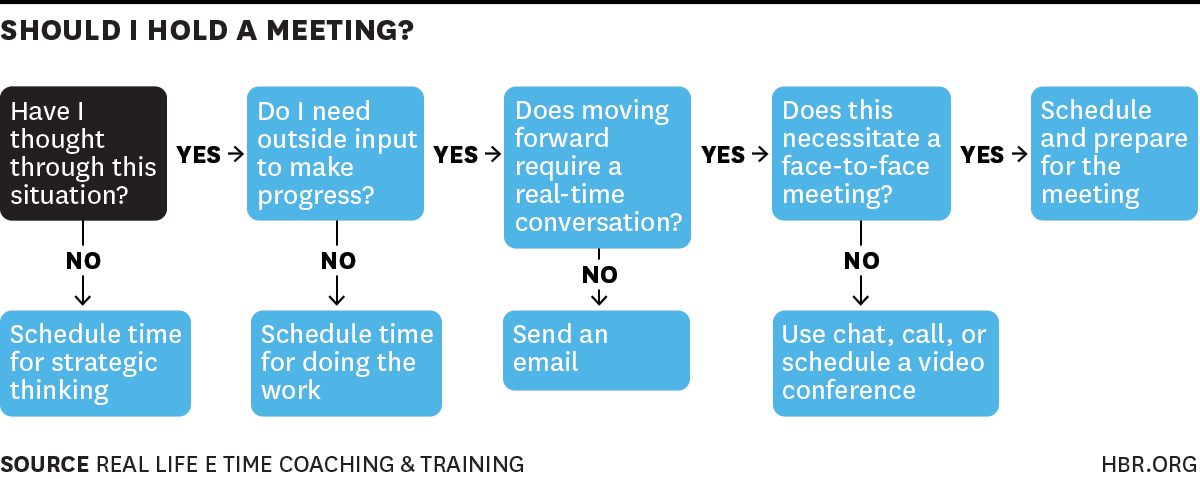Maybe You Shouldn’t Schedule That Meeting
I read an interesting article on HBR last week outlining a framework for deciding whether or not to schedule a meeting. The quality of articles like this tend to vary anywhere between exceptionally helpful to common sense to a complete waste of time. The thing that stood out to me the most about HBRs article was the author outlined a framework for how to handle communication outside of meetings. This is an effective method that, if followed, should still result in the same level of communication (or better), but keeps everyone’s time from being wasted.

There is a ton of good information here, and I don’t want to simply re-hash what is in the article, so I will include some color commentary here and you should go check out the full article right after reading this post.
- Schedule time to think/work - this is something we simply don’t do enough of as part of our busy workdays. Blocking off time on your calendar to tackle something specific is an effective way to make sure you are working on what’s important. It also ensures you aren’t distracted trying to accomplish the same work as part of a different meeting. Don’t have time on your calendar this week? Try scheduling some time in a couple of weeks and be pleasantly surprised when you “find” some time later on - your future self will thank you.
- Leverage asynchronous communication - Just because you have something important to say, and have a few minutes to say it, doesn’t mean you need to call a meeting. After all, others may be busy trying to get work done, don’t bug them if you don’t have to. Instead, use IM or email or text to start the dialog and let your colleagues respond on their own time.
- You probably don’t need to have a meeting - sometimes you do, most of the time you don’t. Are there ways to get the same level of communication across (or better) without requiring everyone to be in the same place at the same time?
- Prepare - if you do end up scheduling that meeting, be sure to prepare. Put an effective agenda, schedule it for half to two-thirds of the time you think you will need, and manage the meeting size to reduce complexity.
Taking some up-front time to decide whether or not to hold a meeting can pay huge dividends in the future. If you can avoid one meeting per week 80% of the year, you can save a full week of waste. Imagine what you could accomplish with an extra week each year to focus on your goals.
Subscribe for Free
Want to stay ahead of the curve? Subscribe now to receive the latest updates, actionable insights, and thought-provoking ideas around business, technology, and leadership straight to your inbox.



